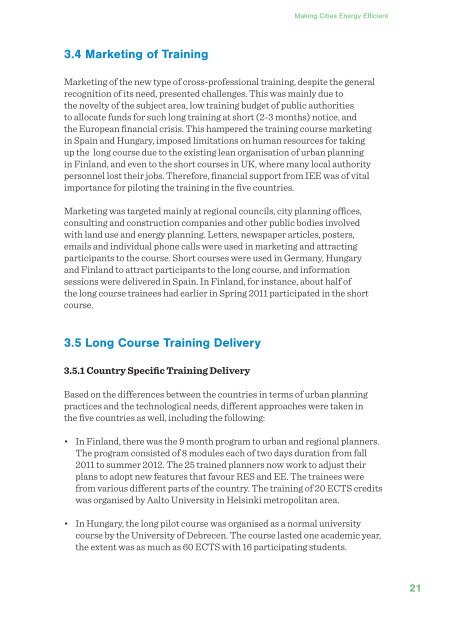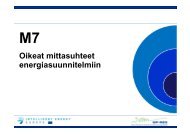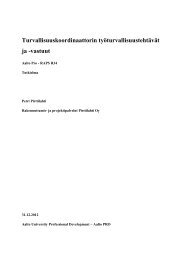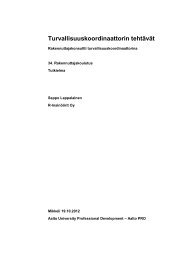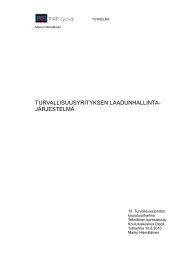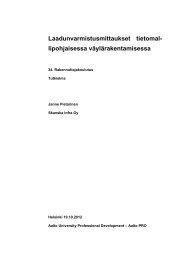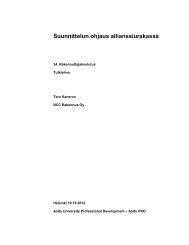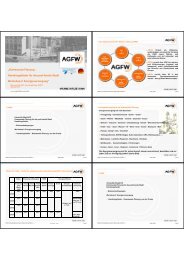Urban and Regional Planning adopting RES - Sitra
Urban and Regional Planning adopting RES - Sitra
Urban and Regional Planning adopting RES - Sitra
Create successful ePaper yourself
Turn your PDF publications into a flip-book with our unique Google optimized e-Paper software.
Making Cities Energy Efficient<br />
3.4 Marketing of Training<br />
Marketing of the new type of cross-professional training, despite the general<br />
recognition of its need, presented challenges. This was mainly due to<br />
the novelty of the subject area, low training budget of public authorities<br />
to allocate funds for such long training at short (2-3 months) notice, <strong>and</strong><br />
the European financial crisis. This hampered the training course marketing<br />
in Spain <strong>and</strong> Hungary, imposed limitations on human resources for taking<br />
up the long course due to the existing lean organisation of urban planning<br />
in Finl<strong>and</strong>, <strong>and</strong> even to the short courses in UK, where many local authority<br />
personnel lost their jobs. Therefore, financial support from IEE was of vital<br />
importance for piloting the training in the five countries.<br />
Marketing was targeted mainly at regional councils, city planning offices,<br />
consulting <strong>and</strong> construction companies <strong>and</strong> other public bodies involved<br />
with l<strong>and</strong> use <strong>and</strong> energy planning. Letters, newspaper articles, posters,<br />
emails <strong>and</strong> individual phone calls were used in marketing <strong>and</strong> attracting<br />
participants to the course. Short courses were used in Germany, Hungary<br />
<strong>and</strong> Finl<strong>and</strong> to attract participants to the long course, <strong>and</strong> information<br />
sessions were delivered in Spain. In Finl<strong>and</strong>, for instance, about half of<br />
the long course trainees had earlier in Spring 2011 participated in the short<br />
course.<br />
3.5 Long Course Training Delivery<br />
3.5.1 Country Specific Training Delivery<br />
Based on the differences between the countries in terms of urban planning<br />
practices <strong>and</strong> the technological needs, different approaches were taken in<br />
the five countries as well, including the following:<br />
• In Finl<strong>and</strong>, there was the 9 month program to urban <strong>and</strong> regional planners.<br />
The program consisted of 8 modules each of two days duration from fall<br />
2011 to summer 2012. The 25 trained planners now work to adjust their<br />
plans to adopt new features that favour <strong>RES</strong> <strong>and</strong> EE. The trainees were<br />
from various different parts of the country. The training of 20 ECTS credits<br />
was organised by Aalto University in Helsinki metropolitan area.<br />
• In Hungary, the long pilot course was organised as a normal university<br />
course by the University of Debrecen. The course lasted one academic year,<br />
the extent was as much as 60 ECTS with 16 participating students.<br />
21


